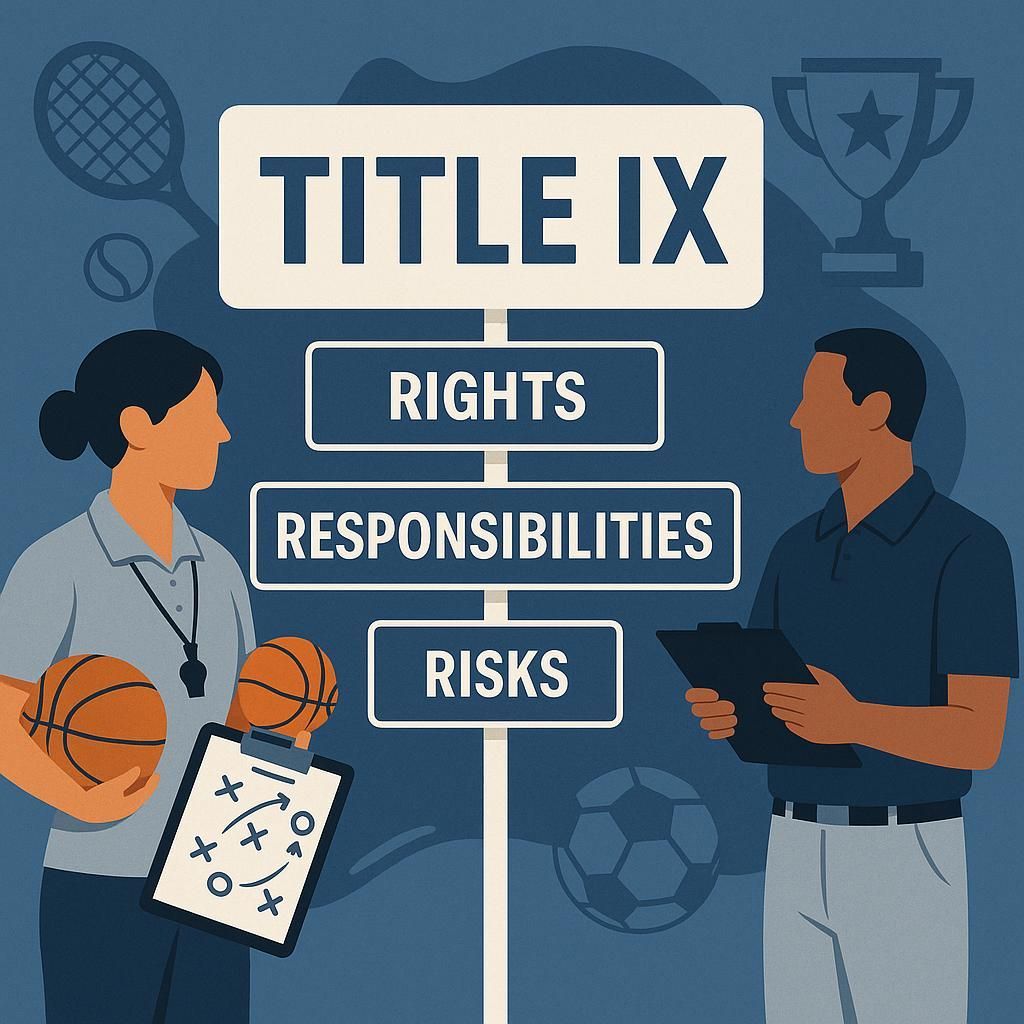Addressing Misappropriation of Funds: How Legal Investigations Prevent Financial Loss
Misappropriation of funds is a serious issue that can severely impact businesses, nonprofits, and government entities. When employees or executives misuse company property or divert financial resources for personal gain, the consequences can be devastating. Internal investigations law firms play a crucial role in identifying financial crimes and ensuring regulatory compliance.
The Importance of Internal Investigations in Financial Crimes
Conducting internal investigations is essential to detecting and addressing financial crimes before they cause irreparable damage. A comprehensive investigative process can uncover accounting fraud, misappropriation, and insider trading. Law firms specializing in corporate investigations help organizations navigate these complex internal investigations with professionalism and discretion.
How Financial Crimes Can Harm Businesses
Financial misconduct can lead to significant negative consequences, including:
- Legal Liabilities – Businesses may face civil litigation and regulatory investigations for failing to address fraud.
- Reputation Damage – A publicized investigation report revealing financial crimes can erode public trust.
- Regulatory Penalties – Government agencies and federal prosecutors may impose hefty fines on companies involved in misconduct.
- Operational Disruptions – Alleged misconduct within senior management can disrupt a company’s work environment and daily operations.
Key Steps in the Internal Investigation Process
An effective workplace investigation into financial crimes follows a structured approach. Internal investigations law firms employ investigative teams with extensive experience in corporate compliance and forensic accounting.
1. Establishing an Investigation Plan
Before launching an investigation, organizations should develop a clear investigative plan. This plan outlines:
- The scope of the investigation
- The key parties involved, including employees, board members, and former employees
- The relevant facts and objectives
- The timeline for conducting investigations
2. Gathering Relevant Information and Evidence
Law firms conducting investigations use various techniques to collect relevant information, including:
- Witness Interviews – Conducting interviews with employees and interested parties to uncover alleged wrongdoing.
- Forensic Accounting – Reviewing financial records to identify accounting issues and discrepancies.
- Document Analysis – Examining text messages, emails, and company policy documents for evidence of misconduct.
- Surveillance and Monitoring – Tracking financial transactions and company property misuse.
3. Ensuring Compliance with Legal Standards
Organizations must ensure that their investigative process aligns with legal requirements, including:
- Attorney-Client Privilege – Maintaining confidentiality when working with legal counsel.
- Foreign Corrupt Practices Act (FCPA) Compliance – Ensuring corporate investigations meet international legal standards.
- Data Protection Laws – Safeguarding sensitive information and maintaining regulatory compliance.
The Role of Law Firms in Internal Investigations
Corporate investigations require the expertise of internal investigations law firms to ensure a thorough and legally compliant process. These firms assist businesses by:
- Offering outside counsel to provide unbiased assessments
- Developing corrective actions to prevent future violations
- Advising on disciplinary action for employees involved in financial misconduct
- Coordinating with government agencies and regulatory bodies
Common Scenarios Requiring Internal Investigations
Many organizations seek legal counsel for internal investigations in situations involving:
- Misuse of company funds – Employees diverting funds for personal gain
- Bribery and corruption – Violations of the Foreign Corrupt Practices Act
- Accounting fraud – Manipulation of financial statements
- Sexual misconduct – Investigating claims that impact company integrity
- Insider trading – Employees using confidential information for personal gain

Preventing Financial Misconduct with Legal Oversight
To mitigate the risks of financial crimes, businesses should implement preventive measures. Companies can:
- Conduct regular audits to detect irregularities
- Train employees on ethical financial practices
- Establish clear company policies on financial transactions
- Utilize in-house counsel for ongoing risk assessment
Taking Immediate Action Against Financial Misconduct
When suspected wrongdoing arises, businesses must take immediate action by:
- Initiating own investigation before misconduct escalates
- Retaining outside counsel to provide an impartial assessment
- Implementing corrective actions to prevent recurrence
- Reporting findings to law enforcement if necessary
Preventing Financial Loss Through Legal Investigations into Misappropriation of Funds
Organizations facing employee misconduct related to financial fraud must act swiftly to conduct an internal review and investigate allegations of potential wrongdoing before the damage escalates. Many investigations begin with meticulous evidence gathering, focusing on relevant documents such as financial reports, emails, and transaction records. If discrepancies arise, companies may opt to self-report the issue to authorities, reducing potential penalties. Legal teams often collaborate with the attorney's office to conduct the investigation and uncover more evidence that strengthens the case. In some situations, government investigations may follow, requiring full compliance with regulatory bodies. Taking proactive steps in such an investigation can help businesses recover losses, uphold financial integrity, and deter future misconduct.
Safeguarding Business Integrity: The Role of Workplace Investigations in Financial Misconduct
A workplace investigation is essential when businesses suspect employee misconduct, particularly in cases of financial fraud or misappropriation of funds. Organizations must act swiftly to conduct an internal review and investigate allegations of potential wrongdoing to prevent further losses. Many investigations begin with thorough evidence gathering, analyzing relevant documents such as financial records, emails, and transaction reports. If discrepancies are found, companies may need to self-report to regulatory authorities or collaborate with the attorney's office to conduct the investigation properly. In some cases, government investigations may follow, requiring businesses to comply with strict legal standards. Taking proactive steps through workplace investigations can help uncover more evidence, mitigate legal risks, and reinforce ethical financial practices within the organization.
Strengthening Compliance: How an Investigation Report Supports Workplace Accountability
A thorough investigation report is a critical component of any workplace investigation, especially when dealing with employee misconduct or financial fraud. Organizations must conduct an internal review to investigate allegations and compile relevant documents that provide a clear record of potential wrongdoing. The investigation report serves as a formal document detailing the evidence gathering process, findings, and recommended actions. In cases where businesses choose to self-report, the report can be shared with the attorney's office or regulatory agencies to ensure compliance. Many investigations require legal teams to analyze financial records, interview witnesses, and uncover more evidence before taking further action. If government investigations follow, a well-documented investigation report can demonstrate due diligence and help mitigate penalties.
The Investigation Process: Uncovering Financial Misconduct in the Workplace
A structured investigation process is essential for identifying and addressing employee misconduct, particularly in cases of financial fraud or misappropriation of funds. Organizations must first conduct an internal review to investigate allegations and determine the scope of potential wrongdoing. This begins with evidence gathering, which includes analyzing relevant documents, interviewing key personnel, and securing financial records. A well-documented investigation report is then compiled, outlining findings and next steps. In some instances, businesses may need to self-report misconduct to regulatory authorities, which can help mitigate penalties. Legal teams often collaborate with the attorney's office to conduct the investigation thoroughly, ensuring compliance with industry standards. Many investigations require continuous monitoring, and in severe cases, government investigations may be initiated, requiring full cooperation. An effective investigation process helps organizations uncover more evidence, strengthen internal controls, and prevent future financial loss.
Protecting Sensitive Information: The Role of Attorney-Client Privilege in Workplace Investigations
During a workplace investigation, businesses must ensure that sensitive legal discussions remain confidential under attorney-client privilege. This protection allows organizations to conduct an internal review and investigate allegations of potential wrongdoing without fear that their legal strategies or findings will be disclosed. A strong investigation process often involves legal counsel assisting with evidence gathering, reviewing relevant documents, and preparing an investigation report to document findings. If a company chooses to self-report misconduct, the attorney's office can provide guidance while maintaining confidentiality. Many investigations involve complex legal matters, and maintaining attorney-client privilege ensures that businesses can navigate these challenges while minimizing risk and liability.
Maintaining a Secure Work Environment During Workplace Investigations
A safe and professional work environment is essential when handling alleged misconduct and conducting a workplace investigation. Employees must feel comfortable conducting interviews and reporting concerns without fear of retaliation. The investigation process should be conducted discreetly, ensuring that the parties involved are treated fairly while protecting company integrity. Legal teams may collaborate with the attorney's office to oversee evidence gathering and analyze relevant documents while maintaining confidentiality. In some cases, businesses may need to involve law enforcement or self-report findings to regulatory agencies. Many investigations require a careful balance between transparency and protecting the overall work environment to ensure continued productivity and trust.
Collaborating with Law Enforcement in Workplace Investigations
In cases of serious financial fraud or alleged misconduct, businesses may need to involve law enforcement to ensure a thorough and legally compliant investigation process. While organizations typically begin by conducting interviews and reviewing relevant documents internally, some situations require escalation to external authorities. If parties involved are uncooperative or if the case involves criminal activity, working with law enforcement can help uncover more evidence and strengthen legal action. In certain instances, companies may choose to self-report misconduct, which can mitigate potential penalties. Many investigations involve collaboration between corporate legal teams, the attorney's office, and law enforcement, ensuring compliance with regulatory requirements while protecting the integrity of the organization.
Conducting Interviews to Uncover Alleged Misconduct in Workplace Investigations
A crucial step in the investigation process is conducting interviews with the parties involved to gather accurate information regarding alleged misconduct. During a workplace investigation, investigators must approach interviews strategically, ensuring they follow legal protocols and maintain confidentiality. The goal is to collect firsthand accounts, clarify discrepancies, and identify relevant documents that may support the case. Attorney-client privilege may apply when legal counsel is present, safeguarding sensitive discussions. Many investigations rely on conducting interviews to obtain more evidence before preparing an investigation report. Whether an organization chooses to self-report findings or resolve the issue internally, thorough questioning of the parties involved ensures a fair and legally compliant outcome.
Contact Us for Expert Internal Investigation Services
Financial misconduct can have severe repercussions for your business, but you don’t have to face it alone. At Masterly Legal Solutions, we specialize in conducting internal investigations that safeguard your organization’s integrity and financial stability. Our investigations team has extensive experience handling complex internal investigations, from accounting fraud to workplace misconduct.
If your business is facing serious allegations or suspected wrongdoing, our legal counsel can provide the expertise you need. Contact us at (972) 236-5051 for a free consultation. Our team will guide you through the investigative process while ensuring regulatory compliance and protecting your business interests.
Notice: This post is not legal advice; it is merely informational in nature. For advice on particular legal issues, please speak with an attorney.

Looking for Legal & Business Solutions? Contact Us Now
Fill in the form or call us to set up a meeting













